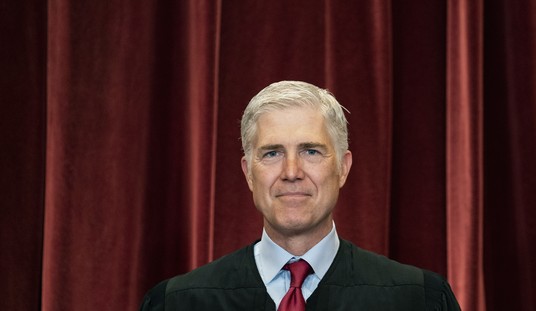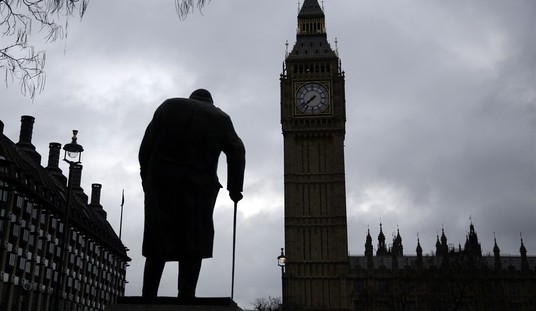Whenever something awful happens, there’s an impulse to look for something that might have caused it, something we could have done, some way to control things so it wouldn’t have happened. There’s a technical Buddhist term for this, bhavatrishna, and I’ll probably write more about it in my Buddhism column on Sunday, but what’s important now is that it happens regularly.
Many times, this shows up in the form of conspiracy theories: rather than feeling essentially helpless, people develop complicated stories of conspiracies to explain things; whether it’s the Mafia, the CIA, NSA, the Freemasons, the Illuminati, the Bilderbergers, the Federal Reserve, the Democrats, the Republicans, the Communists, the Koch Brothers, George Soros, the Jews, the Moslems, the Catholic Church, Opus Dei, or shape-changing reptile people. At least if there’s a conspiracy, then someone has control.
So this time, we’ve got the Navy Yard gunman — you’ll forgive me if I don’t bother to name him — and, of course, people are looking for easy explanations. From the left, we’ve got the usual one of blaming it on the AR-15 he used (which was never there); from the right, in particular Infowars and that consummate ass Alex Jones, we’ve got the assertion that it was psychiatric medications — which it appears were also never there. According to several stories, yesterday and today, the gunman complained of insomnia and was given a sleeping pill that happens to be an ineffective antidepressant.
So, just like the Navy, guns, or Buddhism, it wasn’t psychiatric drugs. In fact, according to the reports:
Navy Yard gunman Aaron Alexis had sought treatment for insomnia in the emergency rooms of two Veterans Affairs hospitals in the past month, but he told doctors he was not depressed and was not thinking of harming others, federal officials said Wednesday.
The drug he was prescribed, trazodone, is a serotonin antagonist and reuptake inhibitor (not an SSRI like Prozac) that in larger doses is an antidepressant, but isn’t used for that much any more because, well, it makes people too sleepy. On the other hand, it is used commonly, in low doses, as a sleep aid. Oh, and by the way, there’s been a lot made of the recent “black box warning” added to some antidepressants, saying that it warns of an increased tendency to violence. Let’s look at the real warning:
Antidepressants increased the risk compared to placebo of suicidal thinking and behavior (suicidality) in children, adolescents, and young adults in short-term studies of major depressive disorder (MDD) and other psychiatric disorders. Anyone considering the use of [Insert established name] or any other antidepressant in a child, adolescent, or young adult must balance this risk with the clinical need. Short-term studies did not show an increase in the risk of suicidality with antidepressants compared to placebo in adults beyond age 24; there was a reduction in risk with antidepressants compared to placebo in adults aged 65 and older. Depression and certain other psychiatric disorders are themselves associated with increases in the risk of suicide.
I’ll tell you a not very secret secret: this black box warning was added mostly after political pressure, because this is a known issue with every kind of treatment for depression, from the newest drugs to talk therapy. The reason is simple: a severely depressed person may wish they could die, but can’t muster the focused will to do it. When they get a little better, they can focus their attention on how to commit suicide. People who are older, and particularly people who have had two or more severe episodes, are less likely to commit suicide because they know from experience that it actually does get better. (Nonetheless the lifetime risk of suicide in severe depression is upwards of 15 percent. It’s not something to be ignored.)
Now, I’ve said in comments on several posts now that the whole argument for this notion that psychiatric drugs, and SSRIs in particular, were responsible is logically flawed. Let’s examine why.
Here’s the basic argument: over the last 30 years, “every” mass shooter has been treated with psychiatric drugs, therefore it must be the psychiatric drugs that are responsible for the deaths.
In logic, there’s a useful principle for looking at pretty much any logical statement called the Principle of Substitution. Basically, you substitute some other topic into the sentence in place of whatever is controversial, and see if it still makes sense. So here’s a substitution: over the last 30 years, “every” Type One diabetic who died has been treated with insulin therefore it must be insulin that is responsible for the deaths.
Now, that statement is obviously ludicrous: of course (nearly) every Type One diabetic who has died has been treated with insulin. That’s how Type One is treated. Similarly, over the last 30 years, pretty much everyone with a psychiatric illness has been treated with psychiatric drugs. That’s how psychiatric illnesses are treated.
On the other hand, we know that if, hypothetically, some outside factor were responsible, it would correlate with mass shootings. So how can we rationally evaluate the possibility some outside factor is responsible?
We need to come back to our old friend the null hypothesis: could we tell the difference between the current situation and one where there was no effect? There’s one quick way to check: if the suspected cause is increasing, then the result should be increasing too.
So, that’s no problem: mass shootings are increasing, right? So you’ve been told, of course, but it turns out not to be true: in fact, the data that was used for several stories about mass shootings increasing turn out to be from a Mother Jones story based on cherry-picking the data.
I think the really interesting thing for me is that the “SSRIs are responsible” and the “guns are responsible” people are using the same flawed reasoning. In both cases, they’re right that the availability of guns and the use of SSRIs has been increasing. But when mass shootings are either about flat, or actually decreasing, there’s really no rational reason to think either one is connected. Sadly, that doesn’t keep advocates from trying to exploit a tragedy by combining it with an insidiously plausible fallacy.
The effect of this, though, could be really significant. The more this notion becomes widespread, the less doctors will be willing to prescribe them. I’m depressive myself, and I remember what life was like before effective antidepressants were available. It wasn’t pretty. It means that depressives may be less likely to accept antidepressive treatments, and again, I lived through some acute episodes before effective drugs were available. I wouldn’t wish that on anyone, even Alex Jones. And possibly worst of all, it will lead to general suspicion that anyone taking antidepressants is likely to turn into a mass shooter — just as some people think anyone with a gun is likely to just start blasting.
And the effect of lots of depression going untreated will be thousands of needless deaths every year.










Join the conversation as a VIP Member